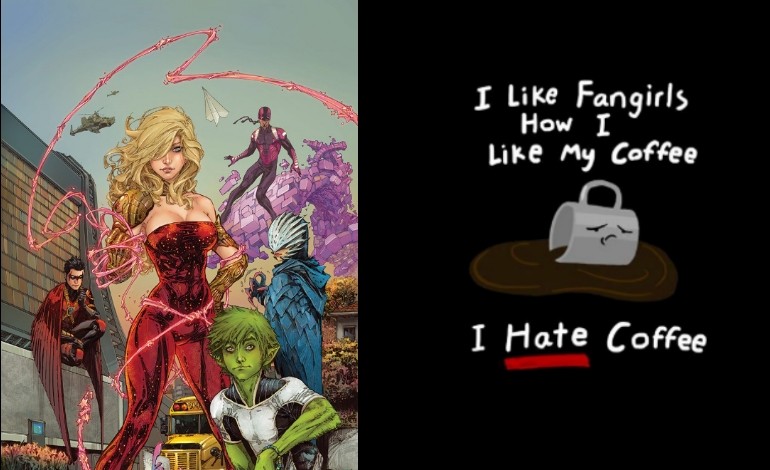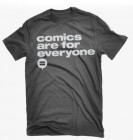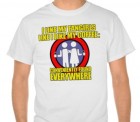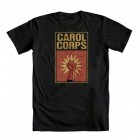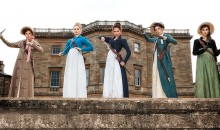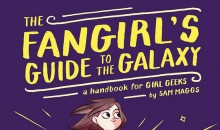This Month in Irritation: Anti-Fangirl Attacks
On April 11, 2014 Janelle Asselin, a former editor at DC and currently a comic book journalist for various geek blogs including Comic Book Resources and Comics Alliance, posted an analysis and breakdown of the new Teen Titans cover, pointing out some issues she had with it, and received a considerable amount of flack.
Oh wait, did I say flack? It’s a comic article posted by a woman on the internet, I mean of course, that she received threats of rape and horrific violence by strangers who then proceeded to try and stalk her online, even to the point of attempting to hack into her bank accounts. She was made to feel unsafe in a community that is supposed to be about supporting each other.
Because in their eyes she had no right to point out that it might be a bad business decision to have the cover of a comic featuring a teenage superheroine with breasts pushed up to her collarbones.
Nothing new here, as Marjorie Liu (writer of Marvel comic books) points out:
“Sometimes it feels as though talking about misogyny in this industry is like dealing with Groundhog Day: there seems to be a continuous reset, a collective male amnesia around the issue. As if, when a woman speaks out, it’s for the first time and everyone is shocked. Just shocked, I tell you. Sexism exists? OH MY GOD.”
Now, I love breasts, and I don’t think that they should be banned from comic books (though I am in the camp that sighs and wishes sometimes that they had maybe a bit more variety). But even if this wasn’t a comic book that has strong ties to a successful children’s TV franchise, even if this was a cover for Tarot Witch of the Black Rose, it’s absolutely ridiculous to think that anyone deserves threats for voicing their opinion, especially if well researched and backed-up with analysis, of a piece of art.
As an industry professional or journalist, if you criticize a part of comic book culture and use gender/race/sexual representation as one of your litmus, you will get harassed and threatened. You basically live with the burden that if you post something important to you it will get torn apart, and attacks will be made on you as a person (“You’re just mad a pretty girl is on the cover because you’re fat”, etc.). You have to have a hard shell to speak out in this community, and it gets tiresome.
These incidents happen every day, and as some comic artists have pointed out, in many ways it is even worse for fangirls in the community than for women who are more established in the industry. Why? Because there are two types of trolls, those that hide in anonymity and harass well-known female creators because they get a kick out of having an effect, even if it’s negative, on anyone influential, and those that are burdened by the fear that if they harass anyone well-known that their favourite male artists/creators will turn against them (yes we have allies, and yes they are wonderful. Love you guys.). So they pick on fangirls instead.
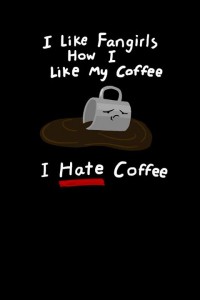 Which brings us to the latest incident of anti-fangirl hatred, stemming from a t-shirt first seen at Wonder-con Anaheim last week. This t-shirt that says “I like my fangirls like I like my coffee…I hate coffee”. Why did a bad joke get so much attention? Because it doesn’t just represent the viewpoint of one single vendor/designer. As a fangirl, you will get leered at by comic shop owners, sexually propositioned by established artists, and disrespected by the small but persistent boys-club of fans. Again, there is nothing wrong with someone asking someone they admire out on a date, in fact I think it’s incredibly brave to do so, but I don’t support this if you’re asking a stranger at a convention if you can see their private hotel room when they get off work.
Which brings us to the latest incident of anti-fangirl hatred, stemming from a t-shirt first seen at Wonder-con Anaheim last week. This t-shirt that says “I like my fangirls like I like my coffee…I hate coffee”. Why did a bad joke get so much attention? Because it doesn’t just represent the viewpoint of one single vendor/designer. As a fangirl, you will get leered at by comic shop owners, sexually propositioned by established artists, and disrespected by the small but persistent boys-club of fans. Again, there is nothing wrong with someone asking someone they admire out on a date, in fact I think it’s incredibly brave to do so, but I don’t support this if you’re asking a stranger at a convention if you can see their private hotel room when they get off work.
It’s hard to be a fangirl, and while we’re building our own community we can feel safe in with Ladies Nights happening around the world at comic shops, and artist Kate Leth building an army of comic shop Valkyries, there is still a large comics community that is incredibly hostile to new female fans.
I am incredibly grateful for the industry leaders who speak out against it, who support each other when they’re attacked and stand-up for fans when they are disrespected. People like colourist Jordie Bellaire who along with Steve Finch created a shirt to show your support of an inclusive comics community, and writer Kelly Sue DeConnick who donates the proceeds of the sale of her Captain Marvel shirts to support Girls’ Leadership Institute.
Want to buy a t-shirt that shows your support of fangirls? Here are some options:
- T-shirt design by Jordie Bellaire
- Available at http://www.zazzle.com/eburnham
- Available at Welovefine.com art by Kelly Sue DeConnick
- http://www.zazzle.com/flatbearables

